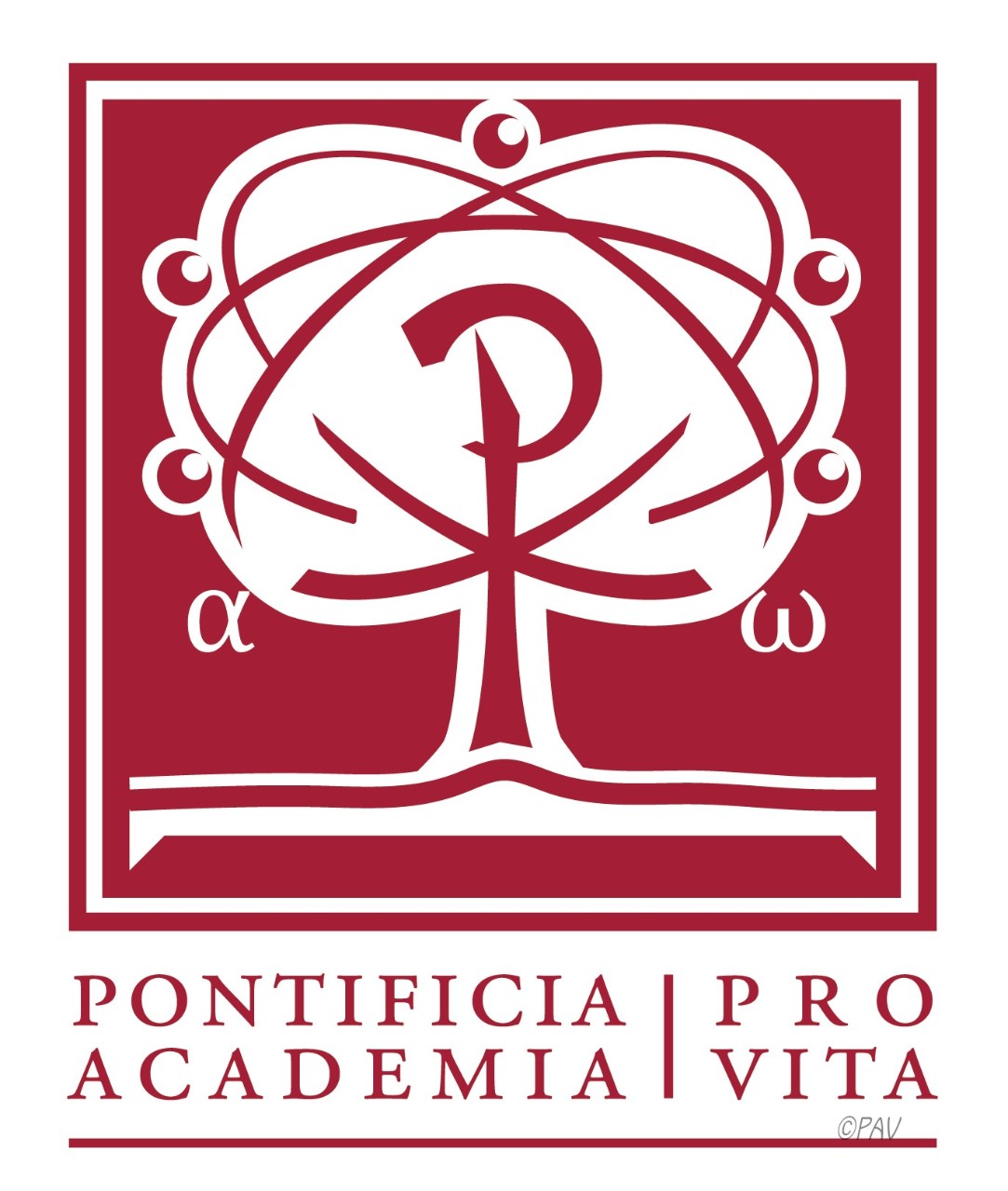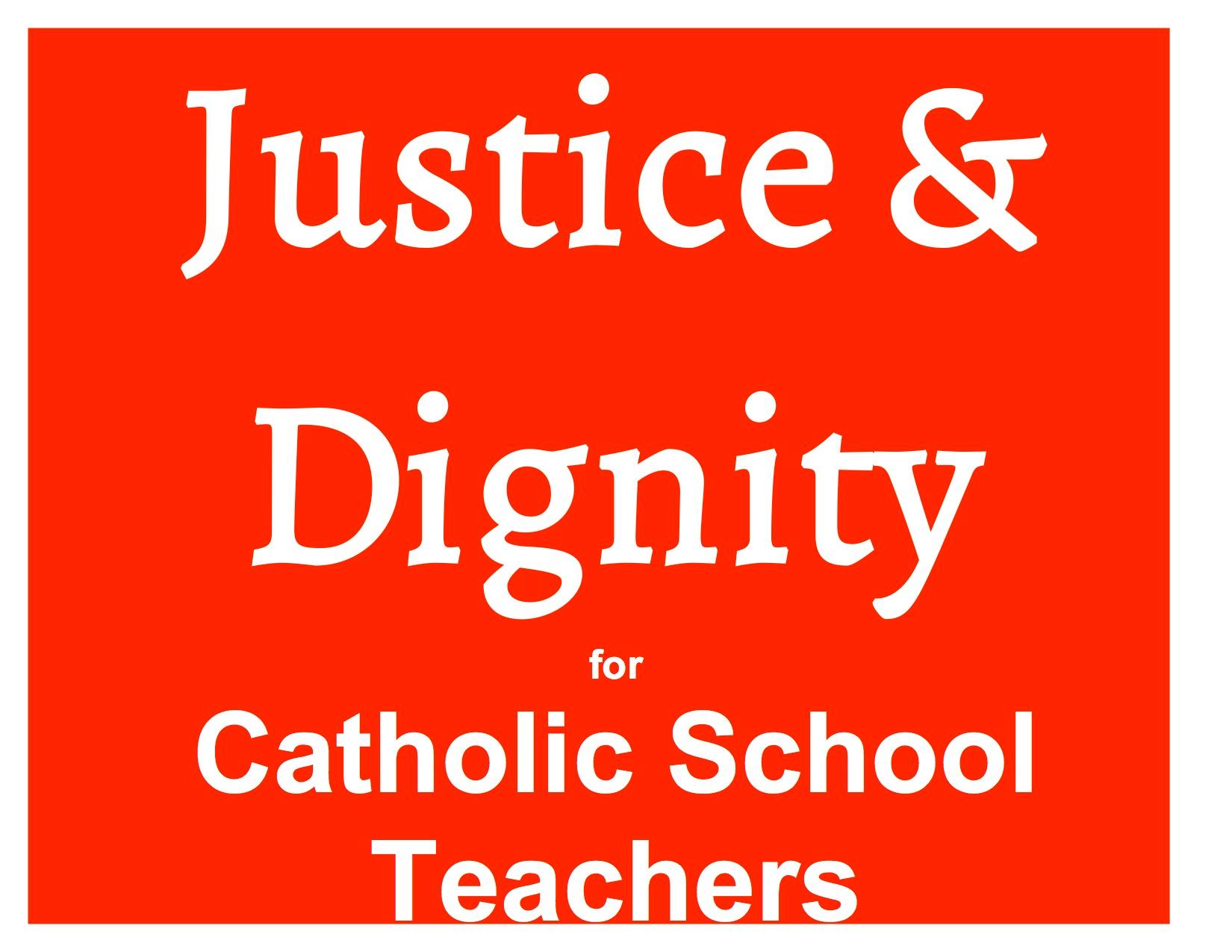Bread & Butter
Current Collective Bargaining Agreement
The purpose of this organization shall be:
Section 1. To bring all lay teachers, librarians, and counselors into relations of mutual assistance and cooperation.
Section 2. To obtain for them the rights to which they are entitled.
Section 3. To raise the standards of the teaching profession by securing the conditions essential to the best professional service.
Section 4. To promote such a democratization of the school as will better enable them to equip their pupils to take their place in the Christian, industrial, social, and political life of the community.
Section 5. To promote the welfare of the children by providing progressively better educational opportunity for all.
Section 6. To eliminate discrimination in education in all its forms.
Press Releases/Public Statements/Relevant News:
- St. Vincent Nurses File Unfair Labor Practice Charges Against Dallas-based Tenet Healthcare with the National Labor Relations Board as Historic Strike Becomes the Longest Nurses Strike in Massachusetts History
- WE STAND WITH ST. VINCENT HOSPITAL NURSES
- Massachusetts Nurse Strikers Aren’t Blinking
- Massachusetts Nurses Face Down For-Profit Health Care Giant Tenet in Daring Strike
- Statement of Solidarity of The MNA Nurses of St. Vincent Hospital with DELTA of Worcester (1/17/2021)
- The MNA nurses of Saint Vincent Hospital wish to express their solidarity and support of the Worcester Diocesan lay teachers.
- The nurses wholeheartedly support the teachers in their assertion, that without appropriate planning, funding, testing, PPE, environmental safeguards, and staff education, there should be no in person learning. In confronting this challenge, a safe, scientifically guided, well planned, adequately funded and appropriately resourced process must be the priority for all involved, as the stakes could not be higher.
- The outcome of these decisions truly have life and death consequences.
- The nurses believe that the diocesan schools should develop a comprehensive plan addressing infrastructure, protocols, staffing, funding and training to safely institute in person learning that we all know our students deserve.
- We support the members of Delta advocating for not only the safety of their students but for their own personal safety and that of their families.
- The bishop should understand that these issues must be resolved before teachers are asked to put their lives on the line.
- St. Vincent Hospital Mass Nurses Association
[The nurses based their recommendations for safe reopening on their expertise in health care. See this research-based position statement of MNA on safe reopening needs: Coalition to Safely Reopen Schools Issues Position Statement Citing Serious Concerns to Be Addressed Prior to Allowing Schools to Open for In Person Learning ,8/31/2020]
- Press Release: WORCESTER DELTA EXTENDS SOLIDARITY WITH ST. VINCENT'S NURSES! (1/6/2021)
-
Worcester, MA: The Diocesan Educators' Lay Teachers Association (DELTA), a member of the
National Association of Catholic School Teachers (NACST), which represents lay teachers and staff
of St. Peter Central Catholic Elementary and Middle School and St. Paul Diocesan Jr./Sr. High
School, unanimously voted to extend solidarity and support to the nurses at St. Vincent's Hospital in
Worcester. -
Nurses are frontline workers caring for the most vulnerable people throughout this pandemic crisis.
However, the hospital administration is refusing to respect the nurses and is even placing nurses in
dangerous situations overloaded with unsafe numbers of patients. Violation of nurses and other
workers rights and dignity is a violation of Christian and Catholic teachings on justice. -
We deplore the disrespect shown to St. Vincent's nurses and staff by the hospital administration
refusal to bargain in good faith with the nurses union. We condemn policies that place profit and
money before people's lives and community safety. We call on the hospital administration and Board
of Trustees to open their hearts and extend to nurses and frontline workers the compassion and justice
they deserve. We remind the hospital administration that they are responsible for protecting workers
safety.Solidarity in struggle for justice and dignity!
Worcester Diocesan Educator's Lay Teachers Association Membership
-
- Catholic schools in Worcester to make temporary switch to remote learning (12/17/2020)
- “There’s a feeling of gratitude, a feeling of relief – it’s the right thing to do, we feel this is justice,” said Brian Leonard, a teacher at St. Paul and president of the Worcester Diocesan Educators' Lay Teachers Association, which had been seeking a two-week break from in-person learning after Christmas vacation. “It’s not a perfect justice though – we don’t want to sugarcoat it.”
-
“We still think the pandemic resurgence is a major concern,” said Leonard, who was informed by his school on Wednesday that one of his own students had just tested positive for COVID. “We want to be assured that there will be safety measures for any possible return (to in-person learning).”
- Union wants remote learning after Thanksgiving (11/2020)
-
We’re especially concerned about the vulnerable,” Mr. Leonard said, citing last Sunday’s Gospel from Matthew 25 about serving Jesus by serving those in need. “We’re concerned about our students and their families,” teachers, administrators, everyone in the schools, said Mr. Leonard who is a theology teacher at St. Paul’s and a member of Our Lady of Lourdes Parish in Worcester.
He said the union, which has about 56 members, wanted to work privately with the schools office, and he talked with Superintendent Perda, but teachers feel they haven’t been heard. So the press release was sent out and prayer vigil held.
Monday’s vigil drew 15 people, some holding signs. Those present said teachers and members of the school communities attended. They sang and offered prayer requests, including one “for the superintendent and bishop to see the right way.” Invited to share their feelings, they called out, “Nervous. Scared. Angry. Frustrated. Disrespected.”
“We just hope for a peaceful and a just solution,” Mr. Leonard said.
Asked what the union plans to do if their request is not granted, he said union members will continue to pray and will meet to decide what to do.
“We make collective decisions,” he said. “We’re going to discern.”
-
- Catholic school teachers protest planned return to classrooms after Thanksgiving
- “We need to be proactive, rather than reactive. We’ve had students already get sick. The numbers are clearly rising. Why not be safe for two weeks?”
-
“They’ve refused to bargain with us in good faith. We believe the changes that have happened due to the pandemic haven’t been cooperative and collaborative.”
- DELTA PRESS RELEASE (11/23/2020):
- The Worcester Diocesan Educators’ Lay Teachers Association (DELTA), an affiliate of the National
Association of Catholic School Teachers, represents the teachers of St. Peter Central Catholic Elementary
School and St. Paul Diocesan Jr./ Sr. High School. DELTA members have worked tirelessly to make in-person
and hybrid education possible for our students since September through innovation in instruction and vigilant
implementation of safety plans.
Despite our best efforts, cases are rising in our schools.
The positivity rates in the communities we serve are also rising at an alarming rate.
DELTA is concerned about the health and safety of our students, their families, and all members of our
school communities, especially the most vulnerable among us.
Data demonstrates clearly that risk of spread is dramatically increased after holiday events, when many
people make exceptions to Covid-19 guidance and gather with greater numbers of people.
On November 17 th , DELTA members unanimously passed the following resolution to allow a two-week
period of remote learning following the Thanksgiving break.
DELTA members have previously requested that a post-holiday remote period be granted by the
Catholic Schools Office, but to no avail.
DELTA members feel that the current in person and hybrid models are not safely sustainable until any
spread of Covid-19 due to contacts over the holiday manifests itself and can be properly addressed
before students and staff head back into the close quarters of the classroom.
This measure is practical, based on the scientific data, and in accordance with our Catholic values. - RESOLVED UNANIMOUSLY:
During this global resurgence when our community and region is experiencing a sustained spread of COVID-
19, DELTA believes we must protect members of our community and prevent the spread of disease in our
schools. Positive cases in our schools focus us on the real risk our students, families, staff, teachers, and
administrators are taking to their health and well-being. While St. Peter Central Catholic Elementary School
and St. Paul Diocesan Junior/ Senior High School both prepared for their respective full in-person and hybrid
openings, and staff response has been nothing but astounding, we need to protect the members of our
community through prevention rather than reaction.
DELTA members support taking the utmost precautions through the Thanksgiving holiday, which state
authorities have warned is likely to increase spread and rates of positivity. DELTA members support
transitioning to remote learning for two weeks after Thanksgiving break, returning to each school's current
respective teaching model on Monday, December 14th. During this time, both schools will be teaching
completely remotely. We all want to be fully present and in-person, but only under safe conditions. With
members of our community gathering with their families and traveling over the holiday season, we face an even
greater risk of spread than we do presently. We ask that the Diocese respect and respond to this very
reasonable request presented by its front-line workers.
- The Worcester Diocesan Educators’ Lay Teachers Association (DELTA), an affiliate of the National

Catholic Teachings on Justice:
- Covid-19: Pontifical Academy for Life calls for solidarity to protect most vulnerable
- Pontifical Academy for Life HUMANA COMMUNITAS IN THE AGE OF PANDEMIC: UNTIMELY MEDITATIONS ON LIFE’S REBIRTH
- Pope at Audience launches new catechesis series on healing the world:
-
Resuming his weekly general audience after the July recess, Pope Francis says that the Christian virtues of faith, hope and charity enable us to heal the physical, social and spiritual infirmities of our times, such as those revealed by the pandemic
-
- Pope at Audience: Recognize human dignity in every person
- Pope at Audience: Healing the world is an opportunity to build something better
- Pope Francis: We are stewards called to share earth's fruits with everyone
- Pope at Audience: Solidarity needed to rebuild post-pandemic community
- Pope Francis: Confront Covid with unbounded love
- Pope Francis: Become guardians of life and earth with contemplation and care
-
Catechesis “Healing the world”: 7. Care of the common home and contemplative dimension
- Pope asks to heal virus of “social injustice” for a healthier world

- Seven themes of Catholic Social Teaching
- The Catholic Labor Network
- Catholic Social Teaching on Labor
- The Catholic Worker Movement
- Revolution of the Heart: The Dorothy Day Story
- Through Dorothy Day's journey from young, communist journalist, to her awakening as co-founder of The Catholic Worker newspaper and "houses of hospitality," sheltering and feeding New York City's homeless during the Great Depression, emerges a portrait of a selfless woman who followed her heart to better the lives of those less fortunate.
- USCCB: Combatting Racism
- Teacher Organizations in Catholic Schools - A Report
- Catholic School Teachers' Union
- The Economics Pastoral and the Rights of Teachers
- Justice in the Church: The Unfinished Business of Catholic Social Teaching
- Saint Oscar Romero (movie)
- Catholic Social Teaching (3 minute animation)
- Covid-19: Pontifical Academy for Life calls for solidarity to protect most vulnerable
- Father James Martin: Wearing a mask is pro-life
- Reclaiming Jesus
- USCCB: Forming Consciences for Faithful Citizenship
- THE TIME IS NOW – A CALL FOR CHANGE AND UNITY: A Statement of the Roman Catholic Bishops of Massachusetts Regarding Police Reform Legislation
- Laudato Si' and the Critique of the Technocratic Paradigm
- Catholic Labor Guild (Boston): History
- Catholic Social Teaching: Primary Documents
- Who Were these Labor Apostles?
- Joe Buckley: Brooklyn priest and labor-school teacher; said “people organizing around their work in body, mind and spirit is the only answer to American individualism.”
- National Catholic Reporter (9/25/2020) "As Catholic school teachers head back to the classroom, discontent simmers"
- "Only a handful of Catholic schools across the country, like those in Philadelphia, are unionized, but the pandemic has demonstrated their importance for winning protections for members, said Schwartz, who also leads the National Association of Catholic School Teachers. Unionized Catholic school teachers were filing labor complaints against the New York Archdiocese for many of the same reasons the teachers without unions in Chicago and Louisville were fuming in Facebook and text groups. 'That's why teachers form unions. No one listens to them. They have no input. They are told what to do,' Schwartz said."
Labor Solidarity in Era of Pandemic
- Bargaining for the Common Good
- National Labor Relations Act: National Labor Relations Act
- National Catholic Teachers Association May 2019 Newsletter
- Massachusetts Teachers Association
- Secrets of a Successful Organizer Handouts
- Teachers Must Set the Terms for How and When Schools Reopen
- Educators for a Democratic Union
- Catholic and public school teachers begin to strike in the face of education cuts
- Massachusetts educators union leaders to discuss vital common good education issues
- Massachusetts Nurses Association: LABOR EDUCATION RESOURCES
- WORLD UNION OF CATHOLIC TEACHERS
- Ontario English Catholic Teachers' Association
- MASSACHUSETTS HEALTHY WORKPLACE BILL
-
Common bullying behaviors
- False accusations of mistakes and errors
- Yelling, shouting, and screaming
- Exclusion and "the silent treatment"
- Withholding resources and information necessary to the job
- Behind-the-back sabotage and defamation
- Use of put-downs, insults, and excessively harsh criticism
- Unreasonably heavy work demands
- Spreading rumors and gossip
- Making offensive jokes or comments, verbally or in writing
- Discounting achievements and stealing credit for ideas or work
- Disciplining or threatening job loss without reason
- Taking away work or responsibility without cause
- Blocking requests for training, leave or promotion
- Pestering, spying, stalking, or tampering with personal belongings and equipment
-
- National Workplace Bullying Coalition: dignity at work is a fundamental right
- Pandemic and Universal Brotherhood
- Humana Communitas in the era of the pandemic. Untimely reflections on the rebirth of life
- Power Tools (AFL-CIO)
- Central Massachusetts AFL-CIO
- The union battle over bringing workers back safely (MA AFL-CIO)
- “We know 125,000 people have died, and we know the workplace is a major source of exposure. Besides, it’s the only place most people are going.″ (7/10/2020)
- The Labor Movement (MA AFL-CIO)
- Federation of American Scientists: Coronavirus Project
- Massachusetts Coalition to Safely Reopen Schools Issues Position Statement Citing Serious Concerns to Be Addressed Prior to Allowing Schools to Open for In Person Learning
-
In response to the statewide push to reopen schools for in-person education, the recently formed Coalition to Safely Reopen Schools, has issued its position statement citing a number of issues that need to be addressed to ensure that schools can be reopened without jeopardizing the health and safety of students, staff or the communities schools serve. As a result of that analysis, the Coalition is calling for a phased approach to reopening, with no in-person learning unless and until those issues are resolved.
The Coalition is a statewide collaboration of school nurses, teachers, parents, bus drivers, cafeteria workers, librarians, school support staff, janitorial staff, labor, occupational health and community advocates, who came together to provide a frontline perspective and concrete medically-informed recommendations for what is needed to safely reopen for in-person learning.
-
The position statement addresses 16 different areas of concern that need to be considered and addressed appropriately to ensure a safe reopening of schools for in-person learning, including:
- Proper ventilation and circulation of air;
- Assessing community resources for alternative school settings;
- Ensuring proper social distancing;
- Standardization and availability of PPE for all staff and students
- Resources and infrastructure to support hand hygiene and mask wearing;
- Safe cleaning practices;
- Addressing the health and safety of students with special needs;
- Access to rapid testing;
- Clear guidelines for contact tracing;
- Appropriate school nurse staffing;
- Space to isolate and monitor suspected or positive cases;
- Resources for safe transportation of students;
- Safe re-entry into school protocols;
- Comprehensive education and training of staff prior to reopening;
- Disparities in access to in-person learning;
- Preserving school staff pay and benefits.
-
In light of all the issues we have presented, the current lack of funding appropriated to address these issues, and the increased need for staff, PPE, testing and other resources to implement a safe reopening, at this time; we don’t believe our State is ready to pursue in-person learning safely. And until these issues are resolved, it is also not safe to have staff stationed in these schools to conduct remote learning for students. This position is further supported by recent data that shows community spread of the virus is on the rise in our State, and as the flu season looms to complicate this crisis.
Good work and planning have begun to address the multitude of issues before us. Let’s now take the time to further refine those plans and involve the frontline staff in this process, while monitoring the progression of the virus. Provide staff with the training and education so that when the time is right, we are ready to safely institute in-person learning that we all know our students deserve.
-

More Catholic Social Teachings:
- Evangelium Vitae – “The Gospel of Life” (1995) Pope John Paul II
- Summary: Powerful underscoring of the dignity and value of life; John Paul II condemns the ‘culture of death’ where individual freedom is placed before the rights of others to life
- Centesimus Annus – “The One Hundredth Year” (1991) Pope John Paul II
- Summary: To affirm democracy the excesses of capitalism must be condemned, as well as the ‘idolatry of the market’ and the ‘insanity of the arms race’.
- Laborem Exercens – “Through Work” (1981) Pope John Paul II rights
- Summary: Work is the central issue of this document; do women and men participate in God’s creativity and share in its productivity or are they merely cogs? This poses the idea that work should increase human dignity as the economy is made for labour and work is the subject of people.
-
On the 90th anniversary of Rerum Novarum, Pope John Paul II revisited the themes laid out by his predecessors, devoting a substantial section of his Encyclical to “The Importance of Unions (20).” The Holy Father observed that “the experience of history teaches that organizations of this type are an indispensable element of social life” and that they serve as “a mouthpiece for the struggle for social justice.” He clarified further the right to strike: “workers should be assured the right to strike, without being subjected to personal penal sanctions for taking part in a strike.”
- Economic Justice For All, 1986
- The Bishops defended the right to organize in the strongest terms, and called for labor law reform to better protect that right. “The Church fully supports the right of workers to form unions or other associations to secure their rights to fair wages and working conditions…. No one may deny the right to organize without attacking human dignity itself. Therefore, we firmly oppose organized efforts, such as those regrettably now seen in this country, to break existing unions and prevent workers from organizing. Migrant agricultural workers today are particularly in need of protection, including the right to organize and bargain collectively. U.S. labor law reform is needed to meet these problems as well as to provide more timely and effective remedies for unfair labor practices (105).” Nor did the bishops exempt the Church from these obligations of social justice. “On the parish and diocesan level, through its agencies and institutions, the Church employs many people; it has investments; it has extensive properties for worship and mission. All the moral principles that govern the just operation of any economic endeavor apply to the Church and its agencies and institutions; indeed the Church should be exemplary… We bishops commit ourselves to the principle that those who serve the Church—laity, clergy, and religious—should receive a sufficient livelihood and the social benefits provided by responsible employers in our nation…. All church institutions must also fully recognize the rights of employees to organize and bargain collectively with the institution through whatever association or organization they freely choose. (347, 351, 353)”
-
a. The dignity of workers and the respect for their rights
301. The rights of workers, like all other rights, are based on the nature of the human person and on his transcendent dignity. The Church's social Magisterium has seen fit to list some of these rights, in the hope that they will be recognized in juridical systems: the right to a just wage; [651] the right to rest; [652] the right “to a working environment and to manufacturing processes which are not harmful to the workers' physical health or to their moral integrity”; [653] the right that one's personality in the workplace should be safeguarded “without suffering any affront to one's conscience or personal dignity”; [654] the right to appropriate subsidies that are necessary for the subsistence of unemployed workers and their families; [655] the right to a pension and to insurance for old age, sickness, and in case of work-related accidents; [656] the right to social security connected with maternity; [657] the right to assemble and form associations.[658] These rights are often infringed, as is confirmed by the sad fact of workers who are underpaid and without protection or adequate representation. It often happens that work conditions for men, women and children, especially in developing countries, are so inhumane that they are an offence to their dignity and compromise their health.
b. The right to fair remuneration and income distribution
302. Remuneration is the most important means for achieving justice in work relationships.[659] The “just wage is the legitimate fruit of work”.[660]
They commit grave injustice who refuse to pay a just wage or who do not give it in due time and in proportion to the work done (cf. Lv 19:13; Dt 24:14-15; Jas 5:4). A salary is the instrument that permits the labourer to gain access to the goods of the earth. “Remuneration for labour is to be such that man may be furnished the means to cultivate worthily his own material, social, cultural, and spiritual life and that of his dependents, in view of the function and productiveness of each one, the conditions of the factory or workshop, and the common good”.[661] The simple agreement between employee and employer with regard to the amount of pay to be received is not sufficient for the agreed-upon salary to qualify as a “just wage”, because a just wage “must not be below the level of subsistence”[662] of the worker: natural justice precedes and is above the freedom of the contract.
303. The economic well-being of a country is not measured exclusively by the quantity of goods it produces but also by taking into account the manner in which they are produced and the level of equity in the distribution of income, which should allow everyone access to what is necessary for their personal development and perfection. An equitable distribution of income is to be sought on the basis of criteria not merely of commutative justice but also of social justice that is, considering, beyond the objective value of the work rendered, the human dignity of the subjects who perform it. Authentic economic well-being is pursued also by means of suitable social policies for the redistribution of income which, taking general conditions into account, look at merit as well as at the need of each citizen.
304. The Church's social doctrine recognizes the legitimacy of striking “when it cannot be avoided, or at least when it is necessary to obtain a proportionate benefit”,[663] when every other method for the resolution of disputes has been ineffectual.[664] Striking, one of the most difficult victories won by labour union associations, may be defined as the collective and concerted refusal on the part of workers to continue rendering their services, for the purpose of obtaining by means of such pressure exerted on their employers, the State or on public opinion either better working conditions or an improvement in their social status. Striking “as a kind of ultimatum” [665] must always be a peaceful method for making demands and fighting for one's rights; it becomes “morally unacceptable when accompanied by violence, or when objectives are included that are not directly linked to working conditions or are contrary to the common good”.[666]
VI. SOLIDARITY AMONG WORKERS
305. The Magisterium recognizes the fundamental role played by labour unions, whose existence is connected with the right to form associations or unions to defend the vital interests of workers employed in the various professions. Unions “grew up from the struggle of the workers — workers in general but especially the industrial workers — to protect their just rights vis-à-vis the entrepreneurs and the owners of the means of production”.[667] Such organizations, while pursuing their specific purpose with regard to the common good, are a positive influence for social order and solidarity, and are therefore an indispensable element of social life. The recognition of workers' rights has always been a difficult problem to resolve because this recognition takes place within complex historical and institutional processes, and still today it remains incomplete. This makes the practice of authentic solidarity among workers more fitting and necessary than ever.
306. The Church's social doctrine teaches that relations within the world of work must be marked by cooperation: hatred and attempts to eliminate the other are completely unacceptable. This is also the case because in every social system both “labour” and “capital” represent indispensable components of the process of production. In light of this understanding, the Church's social doctrine “does not hold that unions are no more than a reflection of the ‘class' structure of society and that they are a mouthpiece for a class struggle which inevitably governs social life”.[668] Properly speaking, unions are promoters of the struggle for social justice, for the rights of workers in their particular professions: “This struggle should be seen as a normal endeavour ‘for' the just good ... not a struggle ‘against' others”.[669] Being first of all instruments of solidarity and justice, unions may not misuse the tools of contention; because of what they are called to do, they must overcome the temptation of believing that all workers should be union-members, they must be capable of self-regulation and be able to evaluate the consequences that their decisions will have on the common good.[670]
307. Beyond their function of defending and vindicating, unions have the duty of acting as representatives working for “the proper arrangement of economic life” and of educating the social consciences of workers so that they will feel that they have an active role, according to their proper capacities and aptitudes, in the whole task of economic and social development and in the attainment of the universal common good.[671] Unions and other forms of labour associations are to work in cooperation with other social entities and are to take an interest in the management of public matters. Union organizations have the duty to exercise influence in the political arena, making it duly sensitive to labour problems and helping it to work so that workers' rights are respected. Unions do not, however, have the character of “political parties” struggling for power, and they should not be forced to submit to the decisions of political parties nor be too closely linked to them. “In such a situation they easily lose contact with their specific role, which is to secure the just rights of workers within the framework of the common good of the whole of society; instead they become an instrument used for other purposes”.[672]
308. The modern socio-economic context, characterized by ever more rapid processes of economic and financial globalization, prompts unions to engage in renewal. Today, unions are called to act in new ways,[673] widening the scope of their activity of solidarity so that protection is afforded not only to the traditional categories of workers, but also to workers with non- standard or limited-time contracts, employees whose jobs are threatened by business mergers that occur with ever increasing frequency, even at the international level; to those who do not have a job, to immigrants, seasonal workers and those who, because they have not had professional updating, have been dismissed from the labour market and cannot be re- admitted without proper re-training.
Given the changes that have taken place in the world of work, solidarity can be recovered, and perhaps with a firmer foundation in respect to the past, if the effort is made to rediscover the subjective value of work: “there must be continued study of the subject of work and of the subject's living conditions”. For this reason, “there is a need for ever new movements of solidarity of the workers and with the workers”.[674]
309. Pursuing “new forms of solidarity”,[675] workers' associations must focus their efforts on the acceptance of greater responsibilities not only in relation to the traditional mechanisms for redistribution but also in relation to the production of wealth and the creation of social, political and cultural conditions which will permit all who are able and willing to work to exercise their right to work in full respect for their dignity as workers. The gradual obsolescence of organizational models based on salaried workers in big business makes it fitting to update the norms and systems of social security that have traditionally protected workers and guaranteed their fundamental rights.

